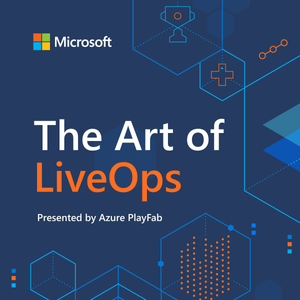
The Future of Food: (Re)growing vertical farming with open-source automation
05/28/24 • 33 min
Why did high-tech farming go bust?
Vertical Farming was one of the big new technologies of the early 2010s. By growing crops vertically with less water and no pesticides, big vertical farms promised to revolutionise food production. So why are the same vertical farms going bust across Europe and the US just ten years after they boomed?
In this episode, we journey to Cambridge University in England to meet Vijja "Pat" Wichitwechkarn. An AI researcher working on agricultural robotics, he has developed a fully automated and scalable indoor farming system - MACARONS - published on HardwareX. In this episode, we address why vertical farming keeps missing the goal, and how open-source technologies could propel it to become the food tech solution we all hoped for.
This episode is researched, produced and edited by Miriam Gradel, Journalist and Media Editor at HardwareX. The music is provided by Kammerin Hunt and ComaStudio via Pixabay.
HardwareX is a peer-reviewed scientific journal about open-source hardware. For more info, visit HardwareX.
Why did high-tech farming go bust?
Vertical Farming was one of the big new technologies of the early 2010s. By growing crops vertically with less water and no pesticides, big vertical farms promised to revolutionise food production. So why are the same vertical farms going bust across Europe and the US just ten years after they boomed?
In this episode, we journey to Cambridge University in England to meet Vijja "Pat" Wichitwechkarn. An AI researcher working on agricultural robotics, he has developed a fully automated and scalable indoor farming system - MACARONS - published on HardwareX. In this episode, we address why vertical farming keeps missing the goal, and how open-source technologies could propel it to become the food tech solution we all hoped for.
This episode is researched, produced and edited by Miriam Gradel, Journalist and Media Editor at HardwareX. The music is provided by Kammerin Hunt and ComaStudio via Pixabay.
HardwareX is a peer-reviewed scientific journal about open-source hardware. For more info, visit HardwareX.
Previous Episode

Open Hardware Talks: Validating openness (with OSHWA and Open Source Ecology Germany)
Welcome to a new HardwareX podcast series: Open Hardware Talks.
In addition to our regular episodes exploring open-source hardware projects, we're launching a new deep-dive series. Open Hardware Talks explores key concepts of open-source hardware in casual conversations with experts and practitioners from across the ecosystem.
For the first episode in this new series, we ask: How do you validate the openness of a given hardware? To explore this, we're joined by Sid Drmay and Lee Wilkins from the Open Source Hardware Association (OSHWA) which maintains the open-source hardware certification recognised by practitioners globally, including us here at HardwareX. As a bonus, Martin Häuer from Open Source Ecology Germany (OSEG) joins to present the DIN SPEC-3105; the world's first open-source standard.
Don't forget! OSHWA is also behind the annual Open Hardware Summit, the world’s first comprehensive conference on open hardware. A hybrid event, most talks and discussions are also available online.
2024 Open Hardware Summit
May 3rd-4th
Montreal, Canada
For more info on how to join, check out the links below.
- Attend the Summit: https://2024.oshwa.org/attend-the-summit/
- Open Hardware Summit YouTube : https://www.youtube.com/user/opensourcehardware
- OSHWA Discord: https://discord.com/invite/bMK7NqFWG9
This episode is researched, produced and edited by Miriam Gradel, Journalist and Media Editor at HardwareX. The music is provided by Kammerin Hunt via Pixabay.
HardwareX is a peer-reviewed scientific journal about open-source hardware. For more info, visit HardwareX.
Next Episode

Drones for Data Gathering: How open-source hardware is making environmental research more viable
What does it take to make research catch up with climate change?
The Arctic regions hold crucial information about the environmental impact of rising temperatures. Calving glaciers and treacherous territories make it a life-threatening mission to collect it though.
As autonomous technologies improve, drones, boats and rovers are increasingly being deployed in place of humans to sample, monitor and manage marine and aquatic systems. However, as costs can range in the millions, the value these technologies can provide researchers is relevant to their cost. That is why Daniel F. Carlson and Claus Melvad put it to a group of engineering students at Aarhus University in Denmark to design a low-cost, lightweight and replicable drone for accompanying them on missions to Greenland. In this episode, we take a look at the Naval Operating Research Drone Assessing Climate Change (NORDACC) and discuss how open-source principles coupled with citizen science could accelerate climate change research - and results.
This episode is researched, produced and edited by Miriam Gradel, Journalist and Media Editor at HardwareX. The music is provided by Kammerin Hunt and ComaStudio via Pixabay.
HardwareX is a peer-reviewed scientific journal about open-source hardware. For more info, visit HardwareX.
If you like this episode you’ll love
Episode Comments
Generate a badge
Get a badge for your website that links back to this episode
<a href="https://goodpods.com/podcasts/hardwarex-podcasts-238836/the-future-of-food-regrowing-vertical-farming-with-open-source-automat-52775612"> <img src="https://storage.googleapis.com/goodpods-images-bucket/badges/generic-badge-1.svg" alt="listen to the future of food: (re)growing vertical farming with open-source automation on goodpods" style="width: 225px" /> </a>
Copy




